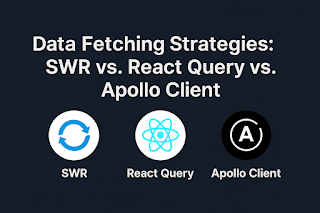Edge Computing for Front-End: How It Improves Performance
In today’s digital ecosystem, users expect lightning-fast experiences. Every millisecond matters — and that’s where Edge Computing steps in.
Rather than relying solely on centralized servers, edge computing brings computation and data storage closer to the user’s physical location. This results in lower latency, faster response times, and a smoother user experience.
What Is Edge Computing?
Edge computing refers to processing data on or near the client’s location instead of depending on a distant server (often called the "cloud"). By deploying content and logic to edge nodes, data doesn’t have to travel across the globe — it’s processed locally.
Why Does It Matter for Front-End Developers?
Edge computing helps front-end developers by enabling:
- Faster page loads
- Reduced server load
- Improved scalability
- Enhanced offline capabilities
- Personalized experiences with real-time data
Real-World Example
Using Next.js with Vercel Edge Functions, you can render content on the edge — personalized for the user, without delays.
export const config = {
runtime: 'edge',
};
export default async function handler(req) {
const geo = req.geo?.country || 'unknown';
return new Response(`Hello from ${geo}`);
}
In this snippet, we serve a custom greeting based on the user’s geolocation — processed directly at the edge node.
Where to Use Edge Computing?
- E-commerce: Instant personalization and localized pricing
- Content-heavy sites: Serve media and assets efficiently
- Authentication: Validate sessions close to users
- Analytics & A/B testing: Near real-time processing without roundtrips
Edge computing isn’t the future — it’s already here. The more we adopt distributed architectures, the more vital edge computing becomes for front-end developers aiming for speed, scale, and great UX.
What are your thoughts on edge computing in front-end development? Have you already implemented it in your projects?
#EdgeComputing #FrontendDevelopment #WebPerformance #Jamstack #Nextjs #CDN #Vercel #CloudflareWorkers #DevExperience #WebOptimization #DeveloperTools #PerformanceMatters #UserExperience #TechTrends



Comments
Post a Comment